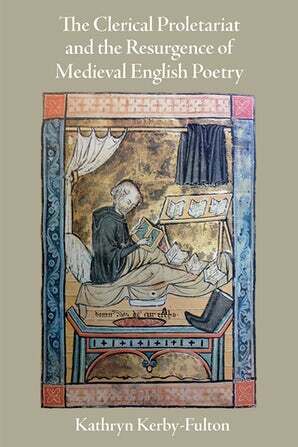From the Medieval Studies Research Blog: The Late Medieval Clerical Proletariat & the Vocational Crisis in Modern Academia

Educational training was the cornerstone of ecclesiastical and monastic life in the early medieval period, with the aim of producing knowledgeable clergy, who might then serve as spiritual and intellectual shepherds for their population. However, as Kathryn Kerby-Fulton explains in her recent monograph, The Clerical Proletariat and the Resurgence of Medieval English Poetry, because universities in the late Middle Ages were turning out more clergy than the church could hire in beneficed positions, many found themselves experiencing a crisis of vocation.
Kerby-Fulton argues that this crisis produces a “clerical proletariat” many of whom ultimately become civil servants, secretaries in great households, writing office clerks, or casual liturgical laborers, especially in London. She shows how this crisis of mass underemployment is further exacerbated by pluralism (the unethical practice of hogging multiple benefices).
This is an excerpt from “The Late Medieval Clerical Proletariat & the Vocational Crisis in Modern Academia” written by Rich Fahey, Ph.D. Read the full story.